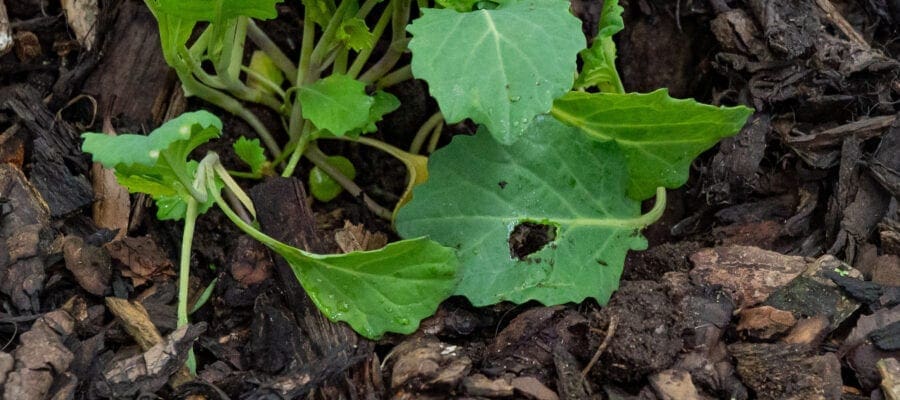With an incredibly wet start to summer this year, there couldn’t be a more pressing time for gardeners to think about slug control.
Just as the season is heading towards its peak and your garden is filled with fresh and leafy harvests, the sudden downpour of rain sends an open invitation welcoming gastropods to feast on your crops.
Of course, the fight against slugs is nothing new. Year after year, gardeners are faced with the trouble of slugs and snails. It’s a battle that has gone on for generations. A quick glance online and you will find a range of age-old wives’ tales’, tricks and home remedies claiming to be the best solution but often with mixed reviews.
Enjoy more Kitchen Garden reading in the monthly magazine.
Click here to subscribe & save.
Interestingly, the RHS conducted a study last year that actually proved five common home slug control methods to be ineffective. Their study showed,
“Copper tape, horticultural grit, pine bark mulch, wool pellets and eggshells were shown to make no difference when applied to lettuce, with gastropods inflicting the same damage to those treated with the remedies as without.”
Noticing the RHS didn’t publicly show the results of their research, the team at Envii were inspired to recreate the test and put the results into a video:
Why don’t these methods work?
Sharp as Shards of Glass
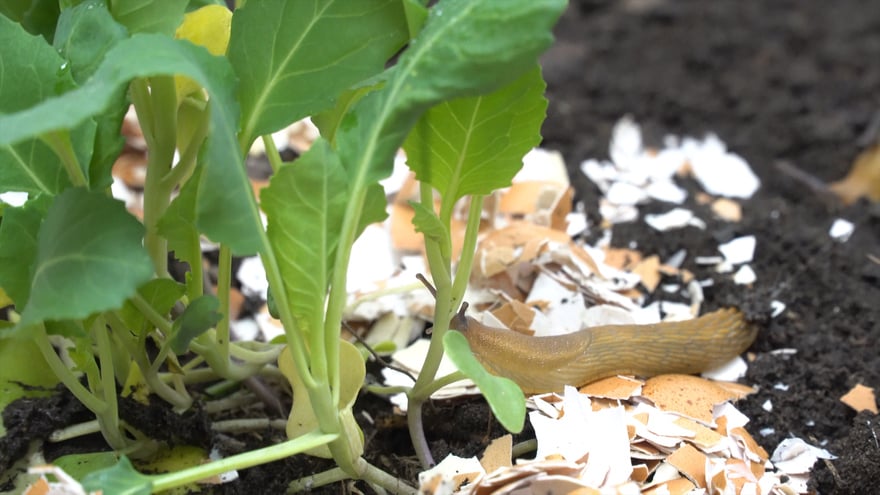
The main idea behind these remedies is to deter slugs by forming rough and sharp surface that puts slugs off crawling towards your plants. However, as you saw from the video, that certainly isn’t the case. The problem here is that these methods forget that gastropods produce mucus. Mucus that’s so protective, it allows them to travel across surfaces as sharp as shards of glass! What chance do crushed eggshells, pine bark mulch and horticultural grit have against that?
Besides, even if all of these materials were harsh enough to begin with, the rain would certainly either soften their texture or make it nice a slippery for slugs to travel on. Which isn’t great considering we all know slugs love to come out after rainfall.
Shock the Slugs Away?
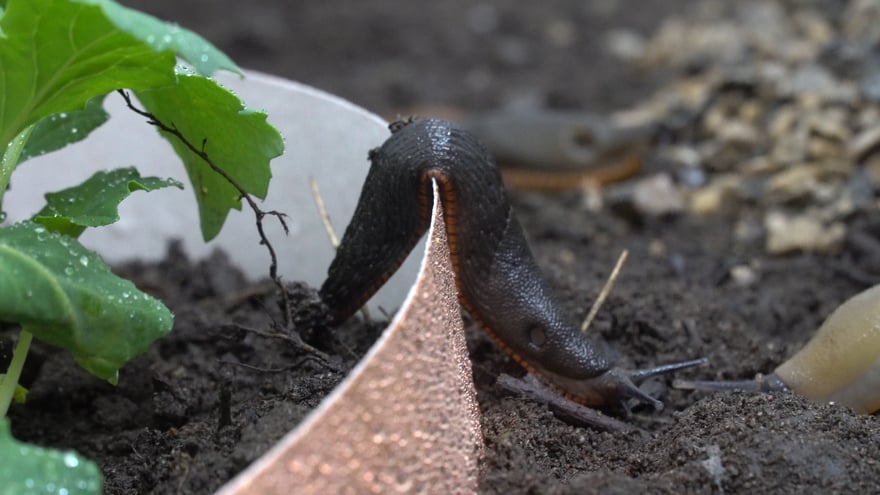
How copper tape works to repel slugs is subject to much scepticism. Supposedly, the metal tape reacts with a slug’s mucus to create a chemical reaction that gives them a small ‘static stock’. Thus, preventing them from travelling across it. As you saw in the video, the slug definitely didn’t look disturbed by the copper tape as it was climbing over the tape and heading towards the cabbage plant. Another thing to note is that there hasn’t been any scientific evidence to show ‘chemical reaction electric shock’ to be true. While there are claims of copper tape being effective under lab conditions, nobody is gardening under lab conditions.
A Mattress of Wool
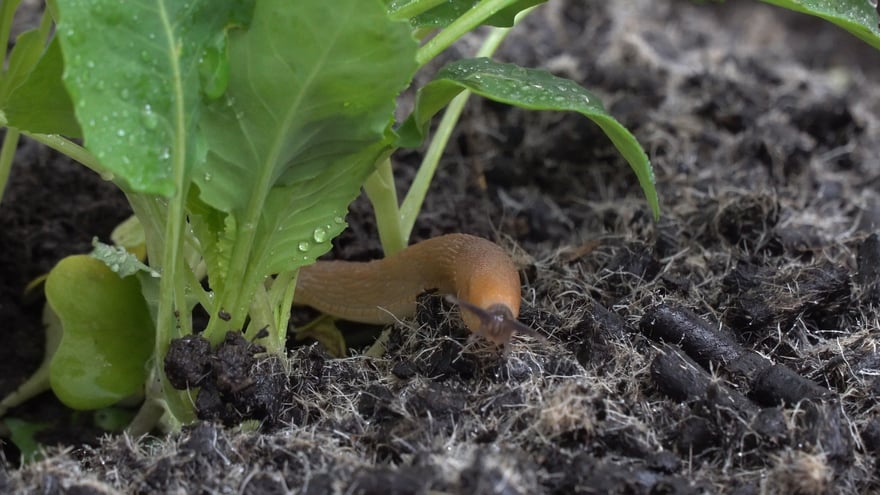
Now wool pellets certainly aren’t a harsh surface, nor can they conduct electricity to create an electric shock. So how exactly do they work to repel slugs and snails? The claim with wool pellets is that they’re a drying surface that work to absorb a gastropod’s mucus.
Yet, many gardeners have reported that rather than acting as a defence against slugs, wool pellets have given slugs a cosy soft mattress of wool to rest on while they devour their plants. This shouldn’t be surprising. Much like crushed eggshells, pine bark mulch and horticultural grit, it only takes a little rainfall for wool pellets to become a haven for slugs to glide over, hide under and lay new eggs. Also, wool pellets usually require a generous application which can only add more to this damage.
So, there you have it. A breakdown of why popular home slug control remedies don’t actually work. However, they’re not the only ineffective methods to consider, discover three more Common but Questionable Slug Repellents every gardener should know about.
Effective Alternatives
After concluding their findings, the RHS suggested that gardeners should encourage natural slug predators such as frogs or go back to basics by simply removing them. While these methods can be useful, not everyone wants a pond on their plot or has the time to keep up with going on late-night slug hunts. Surely there has to be an effective alternative, and there is! It’s called Envii Feed & Fortify.
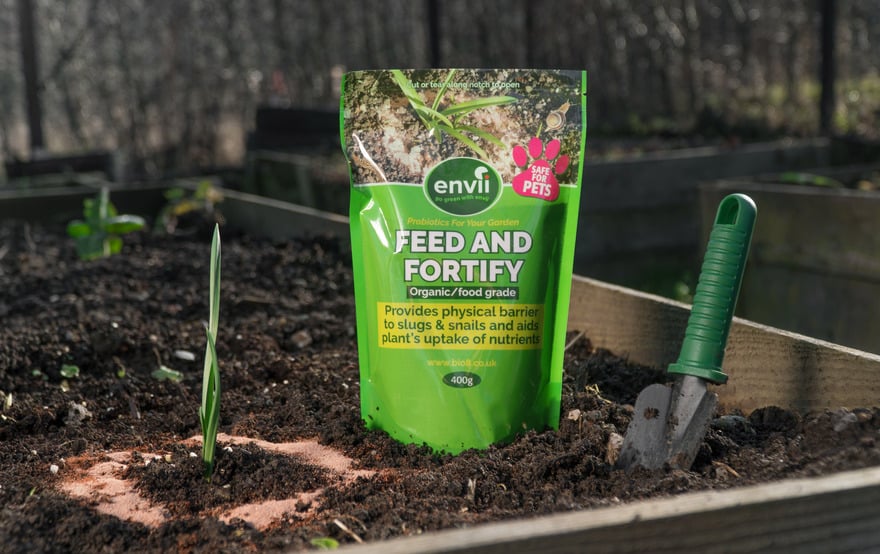
Feed & Fortify works as a physical barrier to break down the mucus produced by slugs and snails. Using diatomaceous earth, it has the effect of dehydrating and irritating slugs upon contact, keeping them away from your plants! Containing iron silicates, it also helps improve soil fertility and unlike other slug control methods, the coarse granules of Feed & Fortify aren’t easily affected by the rain…
The particles from feed and fortify remained even after a week’s worth of rain, and no slug damage! #gardening#gyo#growyourown#allotmentlifepic.twitter.com/URPmvTnB7s
— Greedy_gardens (@greedy_gardens) June 14, 2019
With the upcoming ban of the use of metaldehyde slug pellets, gardeners need to seriously start considering how they’re going to effectively tackle the slug problem. Feed & Fortify is an effective organic treatment which both protects and nourishes plants from slugs, while being safe to use around children, pets and wildlife.
To shop or find out more go to: www.envii.co.uk/shop/feed-fortify/
 Enjoy more Kitchen Garden reading in the monthly magazine. Click here to subscribe.
Enjoy more Kitchen Garden reading in the monthly magazine. Click here to subscribe.
Sign-up to the Kitchen Garden Magazine Newsletter
Enter your e-mail address below to see a free digital back issue of Kitchen Garden Magazine and get regular updates straight to your inbox…
You can unsubscribe at any time.
About the Author
- The Cottage Garden Society ‘Grow In Pots’ For The Malvern Show 9-12 May - 12th April 2024
- Arundel Castle’s Tulip Festival returns - 7th February 2024
- FREE TREES FOR SCHOOLS - 4th January 2024

